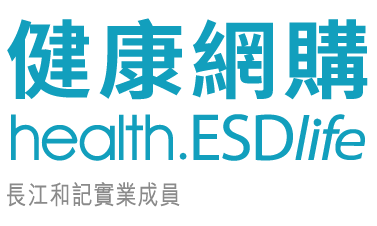Wondering if you have a heart condition? In fact, heart disease, or some may refer as cardiac disease, is a lot more complicated than just discomfort in the heart, its symptoms include chest pain (angina pectoris), irregular heartbeat (cardiac arrhythmia), nausea, cold sweat as well as fatigue. Heart disease is Hong Kong’s most common fatal disease, with a mortality rate that is second to cancer and pneumonia. Coronary heart disease, cardiac arrhythmia, heart valve disease, and heart failure are the most common cardiac diseases found in Hong Kong.
To prevent heart disease, regular cardiac checkup is very important. This article summarized 6 essential cardiac checkup items, for instance, the electrocardiography (ECG) and echocardiography examinations in coronary heart disease checkup, with details on the checkup process and important points. We also compared the cardiac checkup plans and price of different cardiac centers so you can easily select the most suitable cardiac checkup plan.
Suspecting signs of heart diseases? Don’t panic! 6 Most Common Cardiac Checkup Recommendations and Purposes
1. Electrocardiogram, ECG
ECG test records the trace current signal generated from the heart muscle contractions to examine abnormalities in the heart function. ECG is generally divided into Resting ECG and Exercise ECG, both are commonly used in basic cardiac examination.
1a. Resting ECG
When undergoing a Resting ECG examination, the patient will lie down for the examiner to place the electrodes on the chest, hands and feet. After the electrodes are connected to the electrocardiograph, the device will generate a preliminary report. Even though Resting ECG has no side effects, if a coronary heart disease patient does not show signs of angina pectoris during the examination, the results will still remain normal. Thus, Resting EGC is only limited to basic cardiac examination procedures, like testing for abnormal heartbeat, cardiac ischemia and myocardial necrosis etc.
Important Points when undergoing the examination
- Maintain a stable mood and fixed posture in order not to affect the exam
- Refrain from stimulating drinks, food and smoking 1 hour before the exam
- Do not exercise prior to the exam
1b. Treadmill Exercise ECG
Treadmill Exercise ECG is considered a cardiac stress test. Through exercising in specific ways, the patient’s heart pressure and blood oxygen demand will gradually increase to its maximum point. The ECG device traces the heartbeat of the exercising patient to find out whether the heart is functioning normally under pressure, particularly when it hits the targeted heartbeat.
Cardiovascular patients often suffer from myocardial hypoxia during exercises because their heart requires more oxygen when exercising. Through Exercise ECG, doctors can determine if the patient has signs of cardiac arrhythmia based on the increased heart muscle activity. Furthermore, it is a more accurate test to examine cardiovascular function to diagnose coronary heart disease.
Exercise ECG will increase pressure on the heart and escalate myocardial oxygen consumption therefore it is not advised for patients with obvious chest pain, irregular heartbeat, heart failure and high blood pressure to undergo the examination. Additionally, it is important to note that if the ECG appears abnormal during the test, the patient should stop immediately. Doctor’s supervision is mandatory for this test.
2. Echocardiography
Echocardiography utilizes high frequency sound waves to generate multi-directional and multi-angle heart scans. These real time images generated are used to assess whether the heart structure and function are normal, such as heart valves function, heart contraction, beating and pumping blood. The examination is simple, non-invasive and radiation-free. Therefore, it is the most commonly used non-invasive cardiac imaging examination.
3. Cardiac Computed Tomography, Cardiac CT
Cardiac computed tomography is a more advanced imaging diagnostic examination. It can be divided into two types: Calcium-score screening and Coronary CT angiography, CTA.
3a. Calcium-score screening
Calcium-score screening is a non-invasive examination. Its purpose is to detect calcification, (calcium built-up in body tissues) in the coronary arteries. If there is calcification in the arteries, it will be reflected through the calcification index. Doctors rely on it to determine the severity of arterial calcification to assess the probability of coronary heart disease and decide preventive measures ahead. Studies have shown that the degree of coronary artery stenosis is positively related to the degree of calcification. In other words, the higher the calcification index, the higher the chance of coronary artery stenosis.
3b. Coronary CT angiography, CTA
The principle of Coronary CT angiography is to use high-speed Multiple Detector Computed Tomography, MDCT to scan multiple cross-sectional pictures of the heart and cardiovascular system to build a 3D heart image. Through the angiography, doctors can accurately diagnose early Coronary Atherosclerotic Heart Disease, CAHD and cardiovascular system calcification to assess the risks of possible coronary heart disease.
Prior to the examination, the doctor will inject contrast agent through the catheter into the opening of the coronary artery to observe the degree of stenosis of the coronary artery. The doctor has to perform a clinical evaluation to decide if the patient is suitable to undergo the examination.
Coronary Computed Tomography is suitable for the following people:
- Have family history of heart disease
- Unknown chest pain (angina condition)
- Busy work and stressful life
- Patients who suspects a heart problem but are not suitable for running
- Obese people
- Have had coronary artery surgery
- Patients with high blood pressure, hyperlipidemia, cholesterol and diabetes
Important Points when undergoing the examination
- No eating 4 hours before the examination
- Keep your body dry as moisture (sweat or urine) can easily cause interference
- It is not recommended to exercise before the examination because the examination must be carried out in a quiet state
- Metal objects like watches, belt, buckles, zippers, skirt hooks and buttons should be avoided to prevent interference
- If you are taking diabetes medications that contain Metformin (including Glucophage and Glucovance), you must not take it on the day of the examination and two days after
- If kidney function is known to be abnormal, please stop taking it two days before and after the examination
- If you have a history of allergies or asthma, please notify the medical staff in advance
- Your doctor may prescribe drugs that slow down your heartbeat to help improve image quality and reduce radiation does
4. Hemodynamic Examination
The cardiac checkup items mentioned above should not be unfamiliar and what is being introduced here is the hemodynamic parameter that is more common in cardiac specialization, such as ejection fraction and vascular elasticity etc. Currently in Hong Kong, we can only find Cardiax Lab non-invasive comprehensive cardiac examination that is under this category. The Hotman system they adopted is a technology used by NASA to monitor the heart of astronauts. The purpose is to examine the heart through monitoring the parameters related to hemodynamics.
The main features of Cardiax Lab cardiac examination is its quick procedures and accuracy. The entire examination only requires the patient to place the electrode stickers on their heart, which is not invasive and the examination process only takes at most 30 minutes. The report is available on the same day and it analyzes the risks of developing cardiovascular disease in order to prevent any heart problems.
List of Selected Cardiac Checkup Plans (1)
Symptoms of heart disease can be major. If you are suspecting then you should take action immediately to make an appointment for a heart examination.
Below we recommended 8 cardiac checkup plans for you
<<Swipe left or right for more details>>
| Cardiac checkup recommendations | IMC Cardiovascular Health Screening |
Hong Kong Cardiac Comprehensive Cardiac Check Up Package |
HKWWC Overall Body check (CT & Ultrasound heart exam) |
Medifast Comprehensive Heart Disease Screening Program |
| Clinic | International Medical Centre (Hong Kong) Ltd. | Hong Kong Cardiac Diagnostic Centre | Hong Kong Well Women Centre |
MediFast (HK) Limited |
| Cardiac checkup price | HK$1,980 | HK$5,680 | HK$9,000 | HK$3,880 |
| No. of cardiac checkup items | 4 | 49 | 19 | 41 |
| Cardiac checkup details |
|
|
|
|
| Location | Central | Tsim Sha Tsui | Jordan | Causeway bay, Mongkok, Central |
|
Reserve now |
List of Selected Cardiac Checkup Plans (2)
<<Swipe left or right for more details>>
| Cardiac checkup recommendations | QHMS Cardiac Check Up Package (Exercise ECG) | HKMCG Premium Cardiac Examination |
Trinity Comprehensive Heart Disease Screening |
Hong Kong Cardiac Advanced Coronary Artery Disease & Stroke Screening Package |
| Clinic | Quality HealthCare Physical Centres | HKMCG Limited - Health Check Centre |
Trinity Medical Centre | Hong Kong Cardiac Diagnostic Centre |
| Cardiac checkup price | HK$2,480 | HK$3,180 | HK$6,630 | HK$3,880 |
| No. of cardiac checkup items | 34 | 19 | 28 | 41 |
| Cardiac checkup details |
|
|
|
|
| Location | North Point, Quarry Bay, Causeway bay, etc. (total 14 locations) |
Tsim Sha Tsui | Central | Causeway bay, Mongkok, Central |
|
Reserve now |
Click here for more cardiac checkup plans
CTA: Cardiac checkup and ECG plans
Other Cardiac-related Tests
In fact, there are many cardiac-related checkup items that are not included in general physical examination plan. This article does not introduce the below items in detail,
Holter Monitoring: The patient carries an ECG device for 24 hours or 48hours, or even longer, to record the density and duration of abnormal heartbeats.
Cardiac Catheterization: Through percutaneous vascular penetration, the cardiac catheter is threaded to various cardiac chambers and large blood vessels for photography. In the process, contract agent is injected and through monitoring the location and blood flow of the cardiovascular disease, we can see whether the cardiac chambers are functioning normally and if there is a blockage in the coronary artery. If necessary, interventional treatments like angioplasty shall be done.
Magnetic Resonance Imaging (MRI): Magnetic resonance can check the blood flow of the heart to examine whether the blood vessels are blocked and whether the patient’s myocardium is ischemic.
Tilt Table Test: The test is mainly for patients who suffer from multiple unexplained syncope or shock to find out whether they have Dysautonomia. During the examination, the patient will lay on an inclined bed, under different tilt angles, the blood pressure and pulse response will be continuously monitored and recorded for analysis.
Who is Suitable for Heart Examination?
In recent years, more young people are diagnosed with heart disease. Sometimes heart disease can be asymptomatic and there is a risk of sudden death at any time once it occurs, even for young people and those who do not have heart problems. Therefore when choosing a general physical examination, it is recommended to choose plans that include resting ECG or exercise ECG.
If you are previously diagnosed with heart disease risks, such as high blood pressure, hyperglycaemia, high cholesterol, obesity or have smoking habits and very less physical activities etc., you are at a high risk of heart disease even if you do not show symptoms of it. It is strongly suggested to do a heart examination after a certain age, i.e. 40 years old, especially tests like exercise ECG and coronary computed tomography.
If you have a family history of heart disease, for example, your father or mother had a heart attack at a young age; you should also register for a heart examination after the age of 25, and have regular checkup to prevent the disease.







